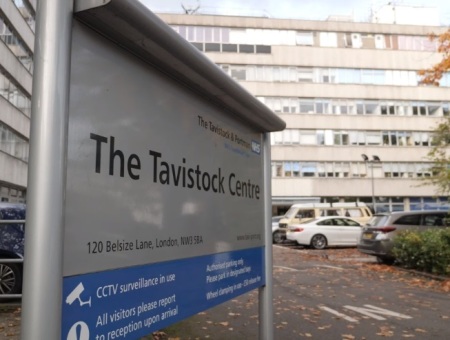NHS scrutinizes puberty blockers amid complaints, lawsuit against Tavistock clinic

Amid an ongoing legal challenge against the United Kingdom's lone gender clinic, The Tavistock and Portman NHS Foundation Trust, the National Health Service is now giving greater scrutiny to experimental puberty-blocking drugs prescribed to gender-confused children.
The NHS announced that it has examined the use of experimental hormone drugs in children who say they desire to undergo a medicalized gender transition. The findings of this official review, conducted by a former president of the Royal College of Paediatrics and Child Health and her team, will be published later this year, The Guardian reported Sunday. The National Institute for Health and Care Excellence (Nice) is also involved in the formal review and will advise Dr. Hilary Cass' team.
“This is a fast-developing area of medicine with emerging evidence and high public interest. I look forward to chairing this independent group, bringing together medical and non-medical experts with a range of perspectives, to make evidence-based recommendations about the future use of these drugs,” Cass said.
She will lead a team of 20 experts.
The Tavistock clinic maintains their approach is "evidence-based" and that they work with each patient on a "case-by-case basis." A clinic spokeswoman said they welcome the review.
The increased scrutiny of these practices is in part due to the testimony of Keira Bell, 23, who underwent a medical gender-transition during her teens and is a claimant in a lawsuit against the Tavistock clinic, brought by former NHS psychiatric nurse Sue Evans.
Bell, who is now known as what is called a "detransitioner" — someone who once lived and identified as the opposite sex but no longer does and in many cases regrets their transition — said in a statement last week that she does not believe minors are capable of giving informed consent to using experimental hormone drugs.
"The treatment needs to change so that it does not put young people, like me, on a torturous and unnecessary path that is permanent and life-changing,” Bell said.
Bell's lawyer noted during court proceedings that she "seriously regrets the process and feels that the way it was handled and her involvement in it was not appropriate.”
Evans and others, such as former Gender Identity Development Service-Leeds clinical psychologist Kirsty Entwistle, have in recent months gone public with their concerns about the internal practices within the Tavistock clinic, particularly the speed with which young people were being referred for hormone blockers.
In July, Entwistle noted in an open letter to Dr. Polly Carmichael, who runs the Tavistock clinic, that an "unspoken rule" existed within the facility, that clinicians were never to inform families that their children were not transgender. Children and their families were also told that puberty-suppressing drugs used to transition youth were "fully reversible," when in fact the long-term effects on developing bodies and brains are unknown.
In June it was documented that in less than 10 years the numbers of youth referred to the clinic for gender identity disorders have skyrocketed, a 1,460% increase in referrals of boys and a 5,337% increase in girls.
U.S. critics of the medicalization of gender often point out that, despite assurances that blockers are reversible, the relevant research on the subject show that the vast majority of patients who start using blockers continue further down the pathway and take cross-sex hormones and undergo surgery, which results in sterility among other grave health complications.
In Ireland, it was reported Monday that doctors who have objections to puberty blockers are having their concerns about the safety of the hormonal agents suppressed.
According to The Irish Independent, concerns over the standards of clinical care and governance were brought up at a meeting of doctors and hospital officials in Crumlin last March, including some who called for the gender identity meds to be "terminated with immediate effect." Some discussed that children had been started on hormones when it did not appear to be suitable.
Yet their concerns were omitted from draft minutes of the meeting, the outlet reported.
The administration of gender identity medicine in Ireland occurs through two Tavistock clinicians who fly in from London and treat the children at Crumlin Children's Hospital. It is estimated the 291 children have been treated there since 2015.
"There was usually no clear record of how or when the decision to commence treatment was made," said Dr. Paul Moran, a consultant psychiatrist who expressed concerns.
Moran also reportedly raised questions over the clinical governance of the GIDS service, and noted the funding for it was irregular, utilizing money streams from outside the country.






















